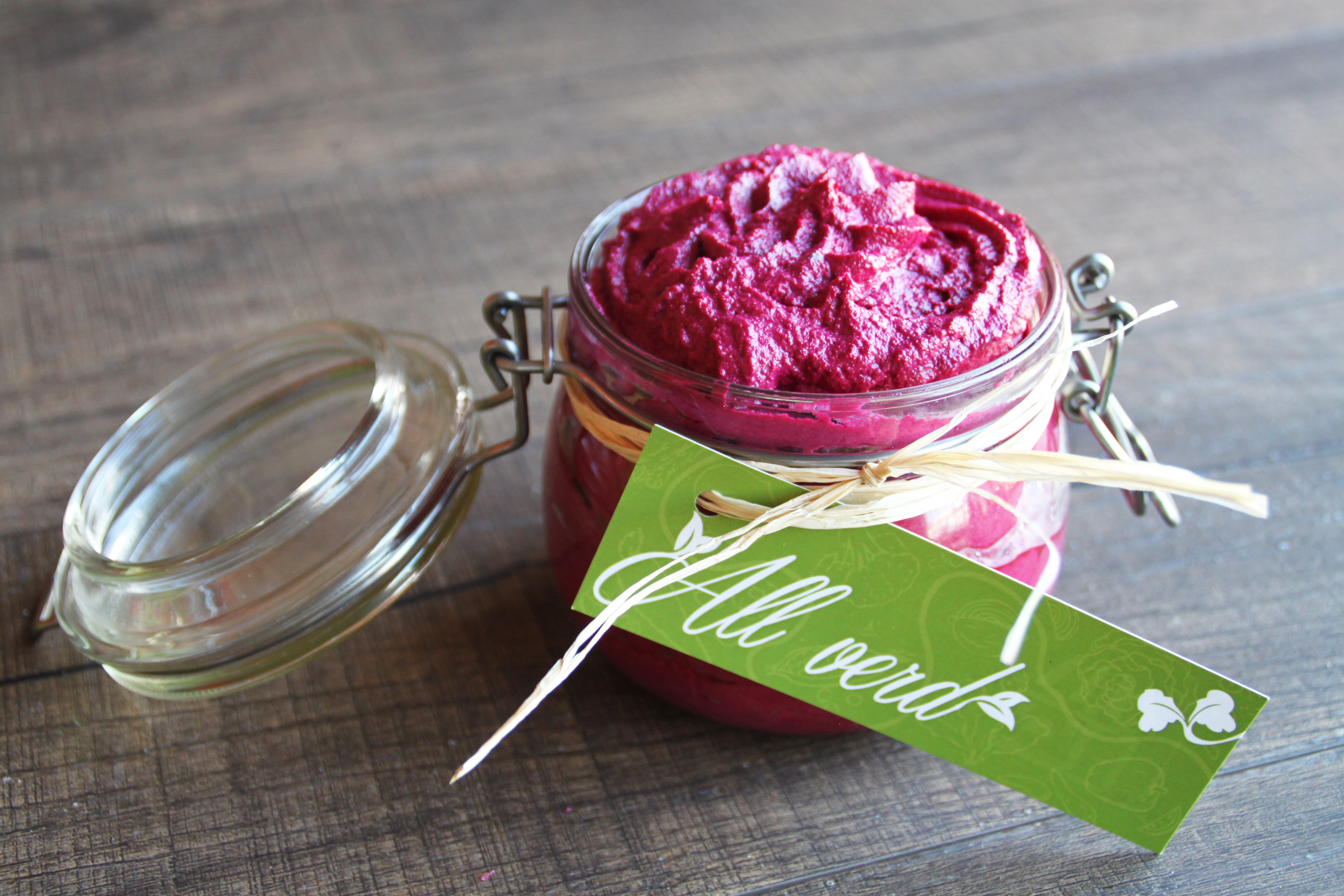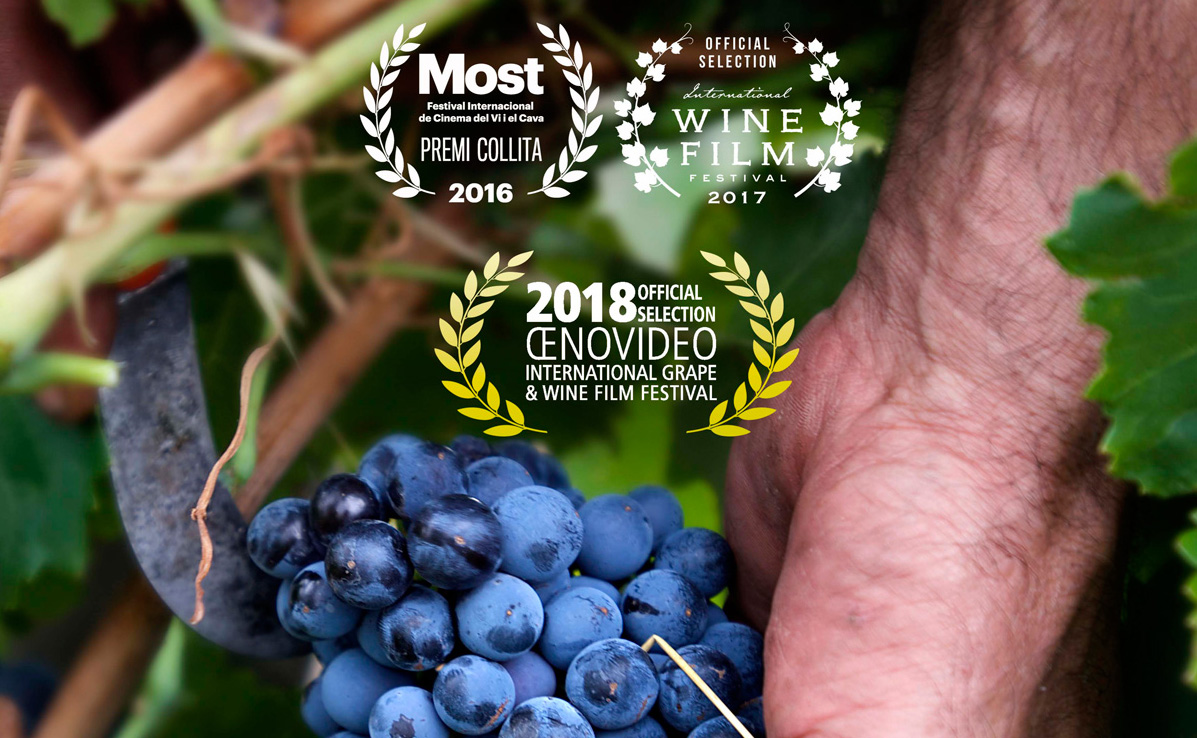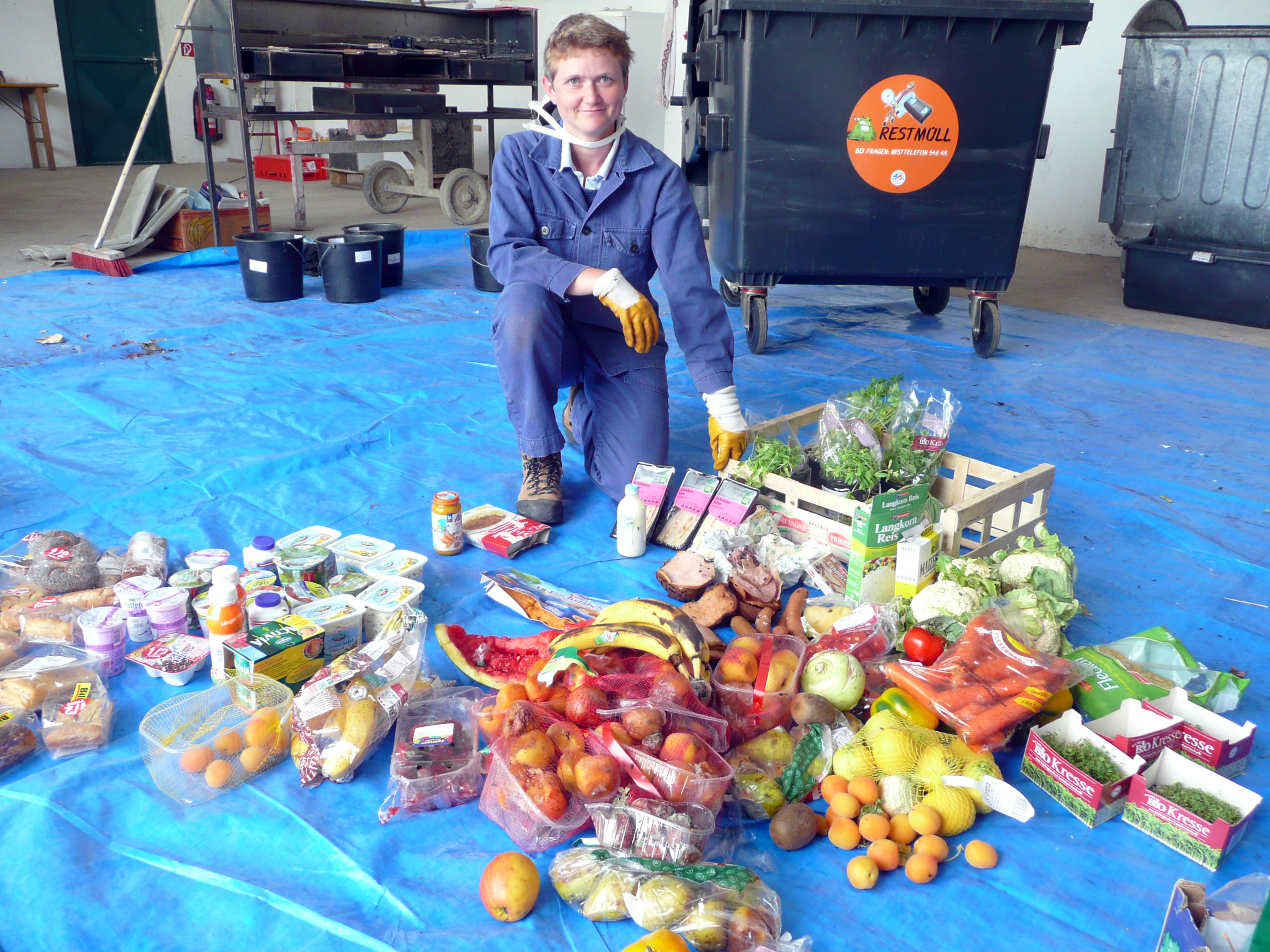Doing it for the pleasure of caring for ourselves and finding a balance, without restrictions or feelings of guilt.
A healthy relationship with food, making the most of seasonal produce and letting creativity into our kitchen, even if it's only for the lunch box we take to work.
We’ll try, using uncomplicated recipes, tastes, aromas and colours. We'll emphasise the importance of colour in our dishes.
Emotions and healthy eating go hand in hand.
Sustainable Food Citizen Week
Video resum de la Setmana Ciutadana de l'Alimentació Sostenible 2021
The activities of the Sustainable Food Citizen Week
Sustainable Food Citizen Week provides an opportunity to understand the relationship between food habits and cross-cutting aspects such as the climate emergency, local economic development, culture, politics, social rights and health. A week dedicated to citizens, in which you will achieve knowledge, reflection and debate about the main issues of the following activities.
Gastronomic heritage
- October 21st - 18.00 HBetevé broadcastingTelevised cooking workshop
- October 22nd - 22.00 H (variable according to betevé programming)Betevé broadcastingDocumentary film season
Documentary on natural wine in Spain. A trip from the north to the south of the country, with the vineyard and wine as the background.
A reflection on natural wine from its producers and opinions from renowned sommeliers.
This activity is part of Betevé's documentary film season, including the films Fermentación espontánea, Taste the waste, Food for change and Il mare piange.So you can combine the documentary with a wine tasting at home, we provide you with a list of wines by order (and time) of appearance.
Minute 01 – Sparkling wine from an ancestral method made in the Alt Empordà. Sparkling wine with unique fermentation.
Minute 05- Red wine from the mountains, made on the north side of the Alpujarra in Granada.
Minute 10 – Mineral and fresh wines made in the Sierra de Gredos (Avila), mainly with Garnacha, also with local white varieties such as Chelva, Albilla Real and Malvar.
Minute 13 – Red wine from the Sierra de l’Albera, in the Alt Empordà, made with Garnacha and Carignan (Lledoner and Samsó).
Minute 16 – White wine with maceration of the skins (orange wine) from Penedès made with Xarello from old vines worked within biodynamic parameters.
Minute 19 – Light red wine made with Sumoll, a native grape of the Penedès. From vineyards surrounded by forests of the Alt Penedès.
Minute 23 - Red wine from Galicia from a heroic viticulture of micro-plots in the Ribera Sacra area.
Minute 27 - White wine from the La Mancha variety and the most planted in the peninsula: Airén, in this case, comes from very old, free standing vineyards.
Minute 31 - Terra Alta red wine, inland Catalonia. From a dry and warm area, with powerful aroma and flavour.
Minute 36 - Wine with Mediterranean expression, made in clay vats in the region of Murcia, from the Tintorera Garnacha grape variety.
Minute 38 - White wine from Montepila grapes from vineyards surrounded by olive trees in Cordoba. - October 29 and 30 from 12.00 to 23.30 H, and October 31 from 12.00 to 22.30 HLa Rambla de Barcelona (between Centre d'Art Santa Mònica and Colom)Market
“Terra i gust” is a gastronomic project that links restaurants with small producers, an initiative from Barcelona City Council and organized by Gastronomia de Proximitat and Slow Food Barcelona, with the support of the Association of Gastronomy and Tourism of Baix Llobregat and l’Hospitalet.
It will be a place for citizens to see the different stakeholders involved in the value chain of local products and sustainability, and to point out the importance of the small artisanal producer, of maintaining traditions and environmentally friendly techniques, highlighting the union with gastronomy.There will be various different spaces:
- Spaces for sustainable gastronomy
- Spaces for beverages, with the participation of the Barcelona Beer Festival, with a selection of craft beers. Natural wines, filtered water, and kombucha will also be served.
- Producers market with seasonal and ecological products.
- There will also be an area for cooking shows, talks and games for kids-
Waste vs Good use
- October 16th - 20.00 HPlaça ReialTalk
Presentation of Repensa el que menges (Rethink What You Eat), a guide for the sustainability of formal and non-formal educational practices in the promotion of the right to food through the service learning methodology.
- October 16th - 20.00 HTeatre del CCCB, Jardí dels Tarongers, Plaça del Rei, Parc de la BarcelonetaShow
A unique musical group, the Vegetable Orchestra, plays instruments made from fresh vegetables. The use of various vegetable instruments makes for a unique musical and aesthetic universe. The Vegetable Orchestra covers the most diverse musical styles, combining genres from electronic music to jazz. The newly created instruments determine the resulting sound. A Vegetable Orchestra concert appeals to all five senses.
- October 20th - 22.00 H (variable according to betevé programming)Betevé broadcastingDocumentary film season
Amazing, but true: from the farm to the dining table, more than half of the food is thrown away and much of that food never reaches consumers. Why are these increasingly large amounts of food being destroyed? In this documentary we will look for explanations for this waste.
This activity is part of the Betevé documentary film series that includes the films Fermentación espontánea, Taste the waste, Food for change and Il mare piange.
Urban rurality and biodiversity
- October 16th - 10.00 HJardí dels TarongersWorkshop
What needs to be taken into account when creating and managing your own seed bank at home or in an allotment. How to carry out the natural selection of seeds, how to conserve them and manage them.
Creating a seed bank is an initiative that reinforces food sovereignty. Recovering seeds is an act of empowerment, in order to stop depending on agro-industrial lobbies.
A seed bank helps to recover traditional seeds and increase the biodiversity which is being lost year after year. This is an educational activity to highlight the great work being done by farmers and how this contributes to a healthy, sustainable diet in our homes. - October 16 at 14:30hJardí dels TarongersCulinary experience
A guided meal to discover how cooking based on local produce and edible wild plants is good, fun and also essential. We explain the story behind each of these dishes, how they were made, the characteristics of their ingredients, how the species used were traditionally employed, and their potential in the kitchen (and the countryside) today.
The wild plants are the stars of each dish. We begin by explaining the plants hidden in the wild-plant salad with pine syrup, followed by a tasting session of savoury coca cakes using vegetables of traditional agricultural varieties (pumpkins, spinach, onions, etc.), wild plants (purslane, white goosefoot, sow thistles, etc.) and locally-produced cheese. We will end with a tasting session of sweet coca cakes (carob brownie with wood calamint, almond cake with satureja and apple crumble with lemon verbena), accompanied by a home-made ratafia wine or elder and blackberry syrup for the younger participants.
The meal is suitable for vegetarians.
We hereby inform you that we cannot guarantee that the meals served during this event are free of substances that may cause some type of allergy or food intolerance.
- October 17th - 17.00 HParc de la BarcelonetaShow
Transhumance is the seasonal migration of herds in search of pasture land wherever it may be depending on the time of year: pasture land in the mountains in summer and on the plain in winter.
And so are our shepherds, they lead the flock where the public is gathered to enjoy the street theatre. Shepherds, goats and our dog are the main characters. But maybe you will also end up being a protagonist. Do you know how to milk? And how do you do as a wolf?
Ecological footprint
- October 14th - 19.30 HPlaça de Sant JaumeShow
The start off the week will be a chorus, musical, and participative. Having their say will be the real heroes of sustainable food, those involved in the food cycle: the fishermen, drivers, chefs, farmers, ranchers, market vendors. The speech will be intertwined with the large mechanical orchestra of Cabo San Roque, distributed in the form of a sound mural in front of the City Hall, along with the active participation of the public, in a collective musical creation composed especially for the occasion. A show that highlights all the participants behind the food supply network and gives them a voice.
- Scenography and musical composition: Cabo San Roque
- Stage direction and coordination: Edi Pou
- Idea and concept: Virginia Angulo / Martín Garber
- October 16th - 20.00 HTeatre del CCCB, Jardí dels Tarongers, Plaça del Rei, Parc de la BarcelonetaShow
A unique musical group, the Vegetable Orchestra, plays instruments made from fresh vegetables. The use of various vegetable instruments makes for a unique musical and aesthetic universe. The Vegetable Orchestra covers the most diverse musical styles, combining genres from electronic music to jazz. The newly created instruments determine the resulting sound. A Vegetable Orchestra concert appeals to all five senses.
- October 17th from 10.00 to 11.00 H and from 12.00 to 13.00 HLa Fàbrica del SolVisit / Tour
The building strikes a balance between technology and nature, making it an efficient and sustainable space.
Visit it to learn about the various environmental solutions it utilises, such as renewable energy generation, water conservation, biodiversity conservation and sustainable mobility, as it has earned a “Friend of the Bike” certificate and is the only refurbished building to have a Green Seal, among others.
Proximity
- October 17th - 16.00 HParc de la BarcelonetaShow
This show reflects the result of the last fifteen years this quintet's career, in which they have further explored their own style using organic, natural instruments with a grass-roots and contemporary language.
The concert revolves around organic instruments made from materials found in nature. Once they have been crafted, respecting the natural material, they generate melodies with a unique sound.
The stars of the show are the oak-wood and slate txalapartas, percussion instruments using wood from the desert and pipes. We will also hear a clarinet made from bamboo, whose sound creates atmospheric base lines that enhance the other instruments.
- October 17th - 17.30 HParc de la BarcelonetaRound table
Challenges and opportunities for multiplying and consolidating transformational food networks
There has been a significant increase in initiatives, over the last few years, which attempt to facilitate and ensure widespread access to organic and local food, taking the needs of the area's farmers into account. Central purchasing bodies, farmers’ distribution networks and new consumption cooperatives with shops (also known as cooperative supermarkets) are just a few examples of these.
The main goal of these projects is to provide a greater diversity of consumer profiles with access to these types of products. To do that, they aim to overcome the obstacles that prices and physical accessibility represent. They also aim to help improve the viability of the initiatives of farmers who work with agro-ecological values and practices.The aim of the session is to discover various types of initiatives for distributing organic and local food and to reflect on what the key elements are that can help to multiply and consolidate transformational food networks. Taking part in this will be members of Germinando involved in GIASAT (Gestión Integral Agroecológica de los Sistemas Alimentarios Territorializados), VallaEcolid, the Barcelona Local Agri-Food Exchange Centre (CIAP), promoted by the Farmers’ Union, and the Quèviure and Economat Social cooperatives.
- October 17th - 20.00 HParc de la BarcelonetaScreening
Sixty years of standardised fruit and vegetable production and the creation of industrial hybrids have had a dramatic impact on their nutritional content. In the last 50 years, they have lost 27% of their vitamin C and almost half their iron. The tomato, for example: through multiple hybridisations, scientists are constantly producing redder, smoother, and firmer fruits. In the process, however, a quarter of the calcium and more than half of the vitamins have been lost.
The seeds that give rise to the fruits and vegetables we eat are now owned by a handful of multinationals, such as Bayer and Dow-Dupont. These multinationals produce their seeds mainly in India, where workers earn just a few rupees, while the company has a turnover of more than 2 billion euros. A globalised business where seeds are more expensive than gold. According to the FAO, 75% of cultivated varieties have disappeared in the last 100 years.
Loss of nutrients, privatization of life. This documentary presents the great monopoly of the industry on our fruits and vegetables.
More week
- October 21th from 16.00 to 18.30 HVideoconferenceRound table
A roundtable discussion on municipal best practice experiences for promoting global justice and healthy diets through a commitment to fair trade. Discussion between participants concerning municipal initiatives that promote fair trade and healthy diets.
- October 21th - 17.00 HMercat d'Autors BarcelonaWorkshop
Demonstration of innovative cookery to utilise seasonal fruit and veg. We’ll show you how to make healthy, creative and fun meals!
- October 21th from 17.00 to 19.00 HEspai GermanetesRound table
Having a small flat is no longer a restriction when it comes to making compost in the city. Community composters are enabling a large number of people to recycle their organic waste.
We offer you a chance to discover this practice at a gathering of the various composter communities in the Eixample district, to identify needs and share experiences around community composters as agents of social change. A unique opportunity for discovering community composting and its benefits first hand.























